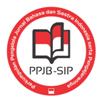Grammar Cases in Novels “Kita Pergi Hari Ini” Based onCharles J. Fillmore's Perspective
DOI:
https://doi.org/10.15294/71fkcj43Keywords:
case grammar, novel, modality, proposition, structureAbstract
The dialogue and narration in the novel Kita Pergi Hari Ini by Ziggy Zezsyazeoviennazabrizkie are interesting to study in more depth. The researcher uses case grammar based on the perspective of Charles J. Fillmore, a modified form of generative transformation theory with verbs as the central part of a sentence and has a semantic relationship in various noun phrases; this relationship is called case. The use of Charles J. Fillmore's perspective case grammar as an analysis tool for the novel Kita Pergi Hari Ini by Ziggy Zezsyazeoviennazabrizkie aims to examine two aspects, namely modality and preposition. Researchers use descriptive qualitative research. The data collection technique for this research is the reading and notetaking technique. The researcher read the Kita Pergi Hari Ini novel as primary data and Charles J. Fillmore's perspective case grammar theory as supporting data. After reading, the researcher noted essential things to display as data. The data collection technique used in this research is the Miles and Huberman Technique, which consists of three stages: data reduction, data presentation, and conclusion. The results of the study show that four modalities were found, namely tense composed of past, present, and future; negation, mode consisting of indicative, imperative, interrogative, conditional, and subjunctive; and aspect consisting of non-progressive, as well as eight propositions which consisting of agentive, goal, experience, time, accompanying, locative, objective, and source.

